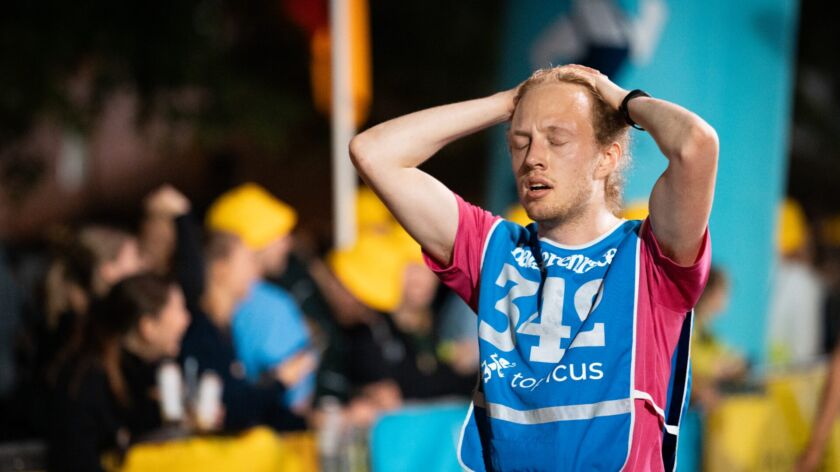Batavierenrace cancelled, shortage of student board members halts relay race
-
 De Batavierenrace in 2024. Foto: Johannes Fiebig
De Batavierenrace in 2024. Foto: Johannes Fiebig
The popular Batavierenrace will definitely not take place this academic year. This was announced today by the foundation board. The reason for the cancellation is a lack of students who can spare enough time to organise the relay race.
There will be no Batavierenrace this academic year. The reason is a lack of volunteers for the organising committee and ‘growing challenges around safety and environmental requirements’, as the foundation board writes in a press release.
The Batavierenrace is one of the biggest student sporting events in the Netherlands. The 176-kilometre relay race from Nijmegen to Enschede, with its day and night shifts, has been around since 1971. Last year, the event attracted over 8,500 participants.
Two weeks ago, the board made an emergency call for more students on the organising committee. To no avail: there were still not enough students registered. According to the board members, this is due to increasing study pressure and the threat of a long-study fine.
Stricter regulations
Another factor is the stricter regulations around environmental and safety requirements. ‘It is increasingly difficult to get certain permits,’ says Joris Hermans, head of Radboud Sport & Culture, on behalf of the foundation board. ‘Take for example the permission to drive motor vehicles through city centres. Plus, this is an event that attracts thousands of people in the middle of the night, which is a difficult time frame to get permits for anyway.’
Years on the board are becoming a luxury
Sven Braster, President of the Radboud University Student Council, also sees that it is becoming increasingly difficult for students to combine years on the board with their studies. ‘This is eating away at the backbone of student life,’ he wrote in a recent (Dutch) opinion column.
This means that the relay race, scheduled for 9 and 10 May, will definitely not go ahead this year. However, the board is looking into the possibility of holding a smaller-scale event on the planned dates.
The foundation board wants to use this interim year for ‘renewal and improvement’. An organisational form is needed that will make the race ‘structurally future-proof’ starting from next academic year. Exactly how this can be done is yet to be explored. ‘We want to draw up a plan that will allow us to put on a large-scale event like the Batavierenrace at a time when it is increasingly hard for students to hold board positions,’ says Hermans. ‘And we will start to put together the organising committee in time for next academic year.’
Translated by Radboud in’to Languages



